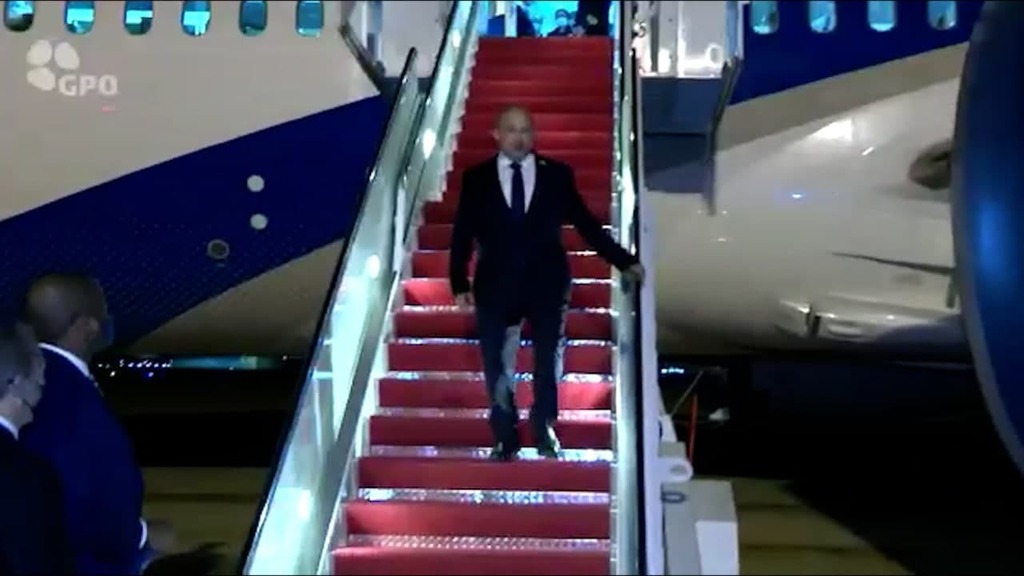Getting your Trinity Audio player ready...
Israel must form a regional coalition against Iran in cooperation with the United States, Prime Minister Naftali Bennett told the New York Times in an interview published Wednesday ahead of his first official state visit to the U.S. since taking office.
In the interview with the Times, Bennett said he will present Biden with a plan to contain Iran on all fronts, including imposing new economic sanctions, mobilizing international pressure and continuing Israel's clandestine campaign against the Islamic Republic's nuclear arms program.
2 View gallery


Prime Minister Naftali Bennett after landing in the U.S. ahead of his meeting with POTUS Joe Biden
(Photo: GPO)
“What we need to do, and what we are doing, is forming a regional coalition of reasonable Arab countries, together with us, that will fend off and block this expansion and this desire for domination [by Iran]”, Bennett told the Times.
This comes as Tehran was ramping up its production of enriched uranium, taking it ever closer to nuclear military capabilities.
Despite being an Iran hawk himself, Bennett presented a more amicable tone than that of his predecessor Benjamin Netanyahu, who has more than once found himself at loggerheads with U.S. officials, mainly due to the Joint Comprehensive Plan of Action (JCPOA), or the Iran nuclear deal.
The 2015 deal was brokered by former U.S. president Barack Obama's administration, in which Biden served as vice president, and sought to put checks and balances on Tehran's nuclear program.
Much like Netanyahu, Bennett will also advise Biden to abandon talks with Iran on reviving the deal, from which former president Donald Trump withdrew in 2018, on the premise it was no longer relevant as the incoming administration in Tehran, led by ultra-conservative Ebrahim Raisi, is set to be more aggressive toward the West.
In addition, Bennett said that he did not see a solution to the Israeli-Palestinian conflict in the foreseeable future. He added, however, that he did not intend to extend Israeli sovereignty over large swaths of the West Bank — a move pursued, and later abandoned, by his predecessor.
The Israeli leader also ruled out the possibility of peace talks with the Palestinians during the term of the current administration, partly because the Palestinian leadership is fractured and rudderless, according to him.
“This government is a government that will make dramatic breakthroughs in the economy,” the Times quoted him as saying. “Its claim to fame will not be solving the 130-year-old conflict here in Israel.”


